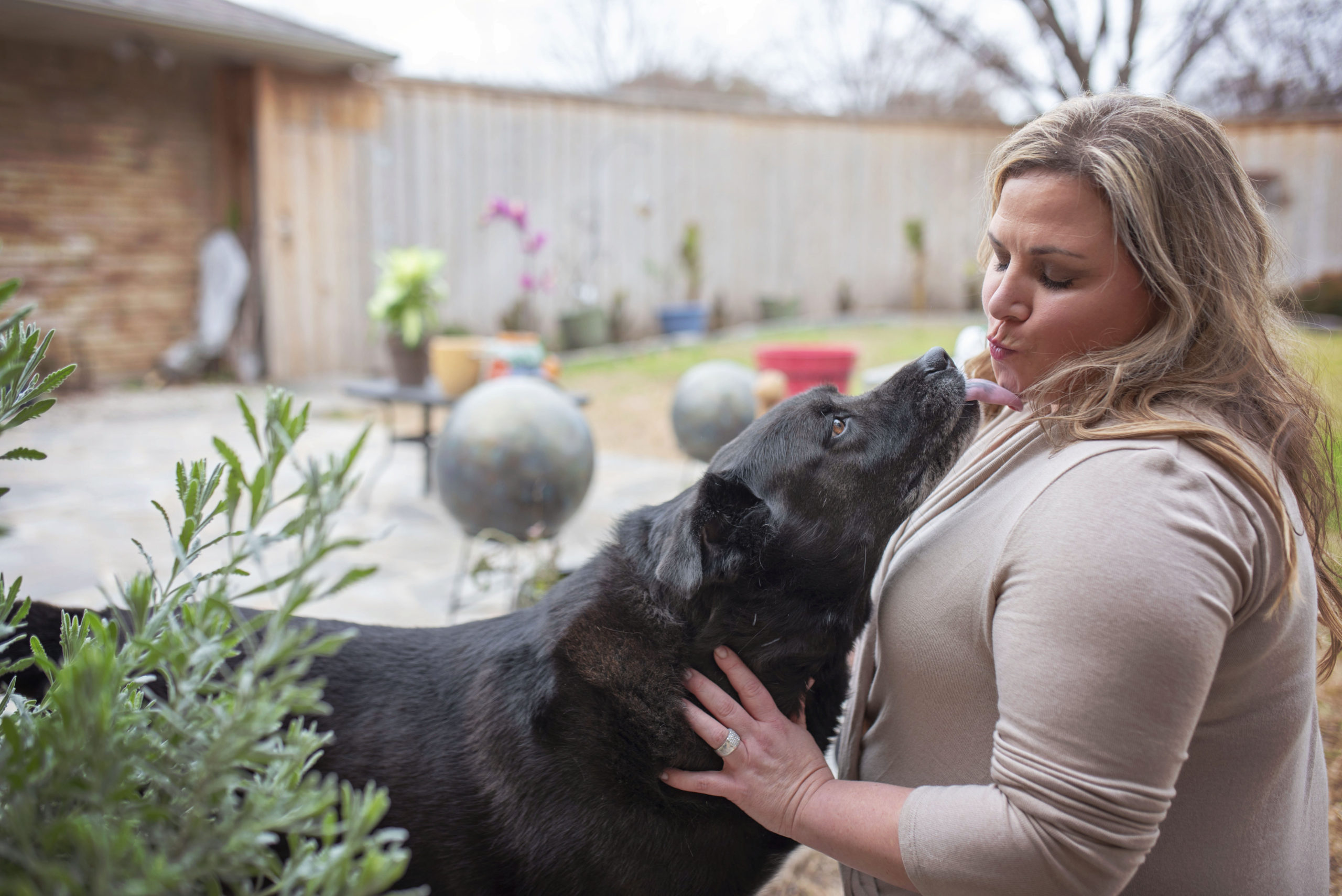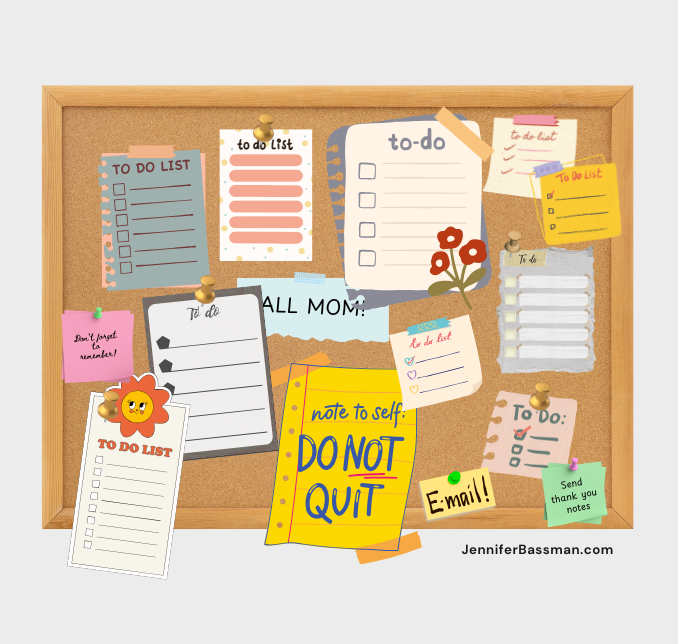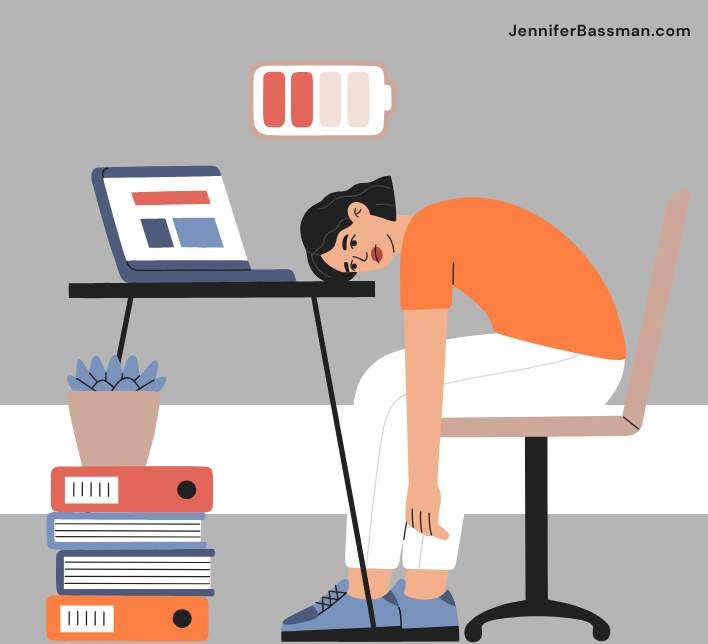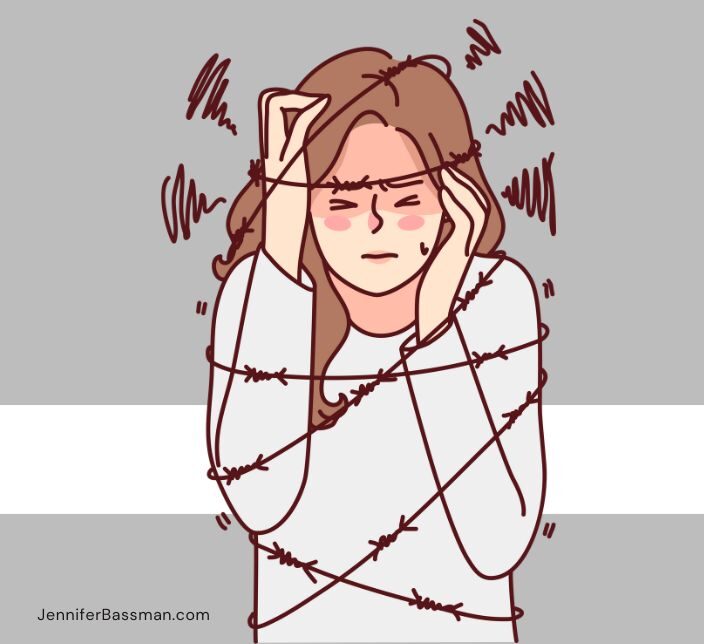Talking to people about stress, burnout, and boundaries is often a lonely road. (It’s also not paved with Ben & Jerry’s…)
It doesn’t make for exciting dinner conversation and most people don’t really want to talk about these things until they have to. By the time most of my burned out clients reach out to me, they feel like they have no other choice.
What an ego boost, huh?
My friends didn’t run and hide from me when I decided to purse this area of coaching, but I did get some blank stares.
I chose to talk about and focus on stress, burnout, and boundaries because of my own burnout experience. There were no resources and no one to talk to when I burned out. When I finally did find other business owners experiencing burnout, I remember thinking “See! I’m not crazy!”
That strange validation of my burnout were some of the first steps to rebuilding the self-esteem that burnout destroyed. It helped motivate me to tune out other people’s negative opinions and to move forward researching, writing, and talking about burnout, stress, and boundaries. I knew what I – and many others – were feeling was the product of a culture that wants you to stay in an unhealthy, vicious cycle.
Do You Have A Point, Jennifer?
Yes. I swear.
I am sharing this story because rebuilding my self-esteem was part of my burnout recovery process. It is for many of us.
Part of what burned us out, was trying to play a game by someone else’s rules. We were trying to be someone we weren’t meant to be, and we were striving to achieve someone else’s definition of success.
Your life isn’t yours if you always care what other people think.
It takes a healthy self-esteem to listen to consistently listen to your own gut.
But it is so easy in the world we live in to get wrapped up in other people’s opinions because they are so accessible. Too accessible.
What Does It Mean to Have A High or Healthy Self-Esteem Anyway?
High self-esteem isn’t just about liking yourself or being able to fend off other people’s opinions, but valuing who you are and having self-respect. You believe in your capabilities, ideas, opinions, and independence to do things on your own.
Your self-esteem is how you feel about yourself, as well as, how you think about yourself and relate to others. It also affects how you feel others see you, treat you, and value you.
Self-esteem isn’t based on one thing or a singular set of thoughts. It’s made up of all the things that define you as a person – your accomplishments, experiences, personality, capabilities, relationships, physical body, and how you perceive others.
It’s human nature to want to be liked and accepted. But, what you think of yourself is a lot more important than what other people think of you.
Why Is Having A Low Self-Esteem So Stressful?
When your self-esteem is low, how much you care about what others think of you is out of balance. You overestimate how much or how badly others think of you or your failings. A low self-esteem will:
- Interfere with your intuition and judgement
- Make you less spontaneous and happy
- Force you to operate from a place of fear, rather than logic or preference.
- Allow you to become an inauthentic version of yourself.
This constant fear and worry about doing the right or wrong thing is very stressful. The constant worry and fear lead to anxiety, which can lead to neediness and insecurity that can drive people away. It’s a vicious cycle starts that results in the loss of self-respect and social isolation.
A low self-esteem is also associated with a negative outlook, which is stressful enough in itself, but also keeps you from managing the impact of daily stressors and your overall stress levels.
Is It Bad to Care What Other People Think?
It’s not bad to care what other people think. In fact, it is human nature and hardwired into our DNA. We all want to be liked and accepted.
Caring what other people think becomes unhealthy when you allow it to drive your decision-making, it forces you to be someone you aren’t, or keeps you from accomplishing something important to you. Maybe you live beyond your means to keep up with your social circle or stop voicing your opinions because they are different. All of this can wreak havoc on your self-esteem and push it lower.
Approval from others should be an added boost. It should be supplementary and complimentary to how you already feed about yourself. The ultimate approval will always come from yourself. That’s why – even when you get approval from an external source that is important to you – it still doesn’t feel like enough until you believe in yourself.
The mental freedom that comes from focusing on your own thoughts and dreams is a boost that no one else can give you.
What Does It Look Like to Not Give A Care What Others Think?
So who are these people who go about life carefree and doing their own thing? What are their secrets?
People who don’t allow other people’s opinions to factor into their desires and decisions consistently do these six things:
- They focus on their own stuff: They keep their eyes on their own work and don’t put themselves in situations where other people’s opinions are amplified. For example, you can’t obsess over what people think when you don’t follow them on social media.
You also recognize that you can’t control what other people think, say, or feel – so focus on what you can control which are your own thoughts, feelings, and behaviors.
- They don’t take things personally: Nothing people do is because of you – it’s because of themselves. Someone’s behavior is a reflection of how they are feeling in the moment.
- They don’t analyze conversations to death: You have to learn to take people for the words they utter, and not look for underlying meanings or subtext.
- They shake it off: Where your attention goes, your energy flows. They more attention you give to something, the more energy you give it. If someone says something upsetting, you refocus your attention to something positive.
- They tune out: Stop listening to every little detail of a story that is stressing you out or excuse yourself from a contentious conversation that will not lead to a resolution. It’s okay not to participate in situations that aren’t of interest or won’t lead to any place good.
- They say no: Martha Beck said, “when it comes to saying yes or no – choose the answer that feels like freedom.” People who say no receive more respect from their peers because their time is perceived as more valuable.
How You Can Build Up Your Self-Esteem And Care A Lot Less About What Others Think
Even if you have a pretty health self-esteem, it doesn’t hurt to bolster it even more. It’s easier to have your self-esteem knocked out than it is to build it up.
Here are the seven things I suggest you put in place to build or keep your self-esteem high:
- Learn to validate yourself: You can do this by stopping to look at the accomplishment itself. (Not the praise or the lack thereof.) When you consider the act itself, you shift away from a need for validation, to satisfaction with the work itself. This helps you regain control of your own pride in yourself. Do this by asking yourself:
- What was good about it?
- What did it or you accomplish?
- How was it helpful?
- Rejection doesn’t always mean there is something wrong or you need to change: We are already hardwired to feel a burn when we experience rejection because of our evolutionary need to belong to a group. There is also a natural trigger to assume you need to change in order to belong. So, when you experience rejection, you need to look for a balance to your emotions. Instead of giving into the temptation to change, ask yourself:
-
- What could you do differently?
- Does anything really need to change, or is there something else affecting the outcome like the wrong audience, timing, or mood?
- If you change something, does it guarantee you won’t be rejected?
- Do something because you want to: Do something because it makes you happy, because it makes you feel good – not because you want external validation. If you do something and wait for others to react to it, you may never get the approval you seek. If you do something based on your own internal motivation, you are less likely to focus on what other people think.
- In relationships, don’t put people on a pedestal: Meaning, you are more concerned about what they think of you, than what you think of them. You should like the people you surround yourself with, rather than thinking that a relationship will make you feel better or seem more important. Some people feel worthless if they are not in a romantic relationship or don’t maintain a certain status or number of people in their social circle. You can balance this out by asking:
-
- What they bring to the relationship that you need?
- What do you bring to the relationship that they need?
- How do you compliment each other?
- Create boundaries and standards: If you have boundaries, you are far more likely to say yes to the right things. You have the right to make your decisions based on how you feel – which can include “I just don’t feel like it” as a good enough reason to say no.
- Stay strong in your beliefs and your opinions: This doesn’t mean being closed off to new ideas or challenges to your beliefs. It means that if you don’t feel comfortable speaking up for yourself, you may be too worried about what someone else with think of you. You may not agree with someone 100% of the time, but you should feel comfortable enough sharing your opinion and feeling respected for it. Ask yourself:
- When push comes to shove, am you able to stand up for yourself?
- Do you feel comfortable sharing a different opinion?
- When your self-esteem is strong, you conserve a lot of emotional energy: Relying on other’s opinions or validation is exhausting and time consuming. You may feel like you are always riding an emotional roller coaster. And waiting around for approval that you may never get will only push your self-esteem lower.
I’ll leave you with this quote: “Confidence is not ‘they will like me. Confidence is ‘I’ll be fine if they don’t.’”
Self-esteem is really believing that.






